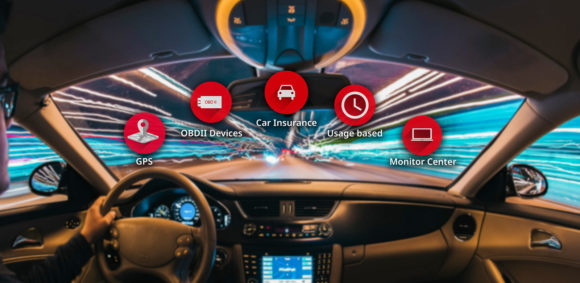Now that most major carriers are selling usage-based car insurance, one of the pioneers in that sector is selling its technology to other carriers as a claims management tool.
San Francisco-based Metromile announced this week that Tokio Marine Holdings had deployed a first notice of loss product through its $13 billion personal auto book of business in Japan. The Metromile Report product allows consumers to file claims using their smart phones and provides data to claims adjusters that helps detect fraud and apportion fault.
Metromile, starting as a managing general agent in 2011, was one of the first companies to use technology to sell insurance based on the number of miles driven. The company became a licensed insurer in its own right in 2016 and now sells coverage throughout the United States.
Metromile Communications Director Rick Chen said the platform that Metromile built to sell insurance on its own can be useful throughout the industry.
“We realized that the underwriting claims technology we were building for our flagship insurance product was going to be valuable to other insurers too,” Chen said. “We can help them reduce loss-adjustment expenses by up to 30 percent.”
Nine of the top 10 private passenger automobile insurers have usage-based insurance programs in place, according to the Insurance Information Institute. In 2018, there were 10 to 11 million telematics-enabled insurance policies in place, out of some 200 million insured automobiles, according to the Institute.
Metromile is packaging its technology in a software-as-a-service offering called Metromile Enterprise. The platform includes Report — the loss reporting tool — and three other products.
- Metromile Replay is a “virtual witness” that recreates accidents based on data collected from the Pulse sensors that Metromile attaches to the onboard diagnostic ports in customers’ cars.
- Metromile Detect alerts adjusters if its programming finds reason to suspect a claim is fraudulent.
- Metromile Streamline provides back-office automation and customer intelligence.
Tokio was the first carrier to deploy Metromile’s technology, starting with the Streamline product in August 2018. In that same year, the Japan-based carrier was among investors that provided $90 million in equity during Metromile’s Series E funding round.
Tokio explained its investment in Metromile within its 2019 annual report. President and Group Chief Executive Officer Satoru Komiya said in a letter to shareholders that Metromile “aspires to deliver the world’s highest level of response to automobile accidents.”
“Metromile uses its world-leading technologies to automate the automobile insurance claims service process to the greatest degree possible,” Komiya said.
In a section of the annual report titled Prompt Claims Payments, the carrier said Metromile simplifies the claims reporting process for consumers while allowing clams adjusters to devote their energies toward complicated settlement negotiations.
The same report featured Tokio’s other investments in technology. Tokio said Orbital Insight Inc. will speed up claims payments after natural disasters by using satellite images and artificial intelligence to determine the scope of flood damage. NTT Docomo uses artificial intelligence to propose optimal insurance coverage based on customer needs and budgets.
Metromile joins some technology heavyweights in usage-based insurance technology sector. In January, Cambridge Telematics announced the launch of Claims Studio, an account reporting system built on its existing telematics technology, which monitors customer’s driving habits.
The Cambridge, Massachusetts-based company was launched in 2010. The company says its technology is now used in more than 50 active programs with insurers and other partners in 25 countries.
Munic, based in Villejuif, France, also provides a patented on-board telematics product that is used by several U.S. carriers. The company on Feb. 10 listed an initial public offering on the Euronext Growth stock exchange in Paris.
Metromile reinvention as a technology provider comes after it took a beating as an insurance carrier.
The company lost $2.5 million in 2018, $308,000 in 2017, and $2.9 million in 2016, according to the National Association of Insurance Commissioners. Metromile reported $87 million in net written premiums in 2019, according to NAIC, and $32 million in 2017, according to an examination report by the Delaware Department of Insurance released in January 2019.
Was this article valuable?
Here are more articles you may enjoy.


 Building Fortification And The Role of The Insurance Industry
Building Fortification And The Role of The Insurance Industry  Walmart to Pay $100 Million to Settle FTC Case on Driver Wages
Walmart to Pay $100 Million to Settle FTC Case on Driver Wages  Asbestos Lawsuits Prompt Vanderbilt Minerals to File Bankruptcy
Asbestos Lawsuits Prompt Vanderbilt Minerals to File Bankruptcy  AI Claim Assistant Now Taking Auto Damage Claims Calls at Travelers
AI Claim Assistant Now Taking Auto Damage Claims Calls at Travelers 